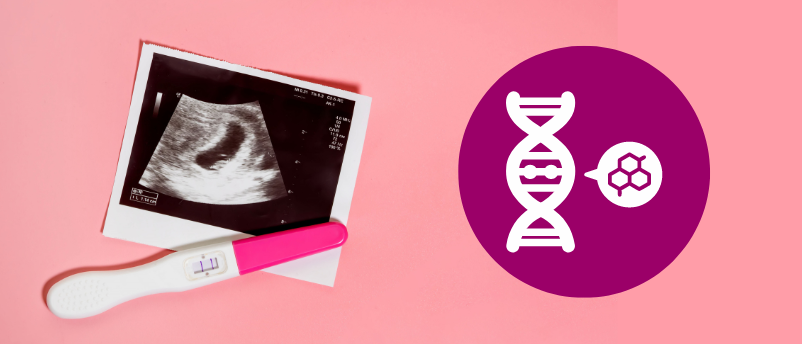
BioTechniques News
Tristan Free

Scientists have discovered an association between a variant in the synaptonemal complex protein, SYCE2, and pregnancy loss through the effects of recombination.
An international collaboration led by researchers at deCODE genetics (Reykjavík, Iceland), has completed a genome-wide association study on the largest dataset of women who have experienced pregnancy loss investigated to date, identifying an association between a missense mutation in a gene involved in homologous recombination and pregnancy loss. The study adds more information to help understand why pregnancies are lost.
Recombination between chromosomes is a natural occurrence and a key step in the production of gametes; however, these recombination events can occasionally lead to the formation of dysfunctional or mutated chromosomes that can be transmitted from the newly formed gamete. Chromosomal abnormalities are typically maternally transmitted and are found in 60% of pregnancy losses, making them the most common cause of pregnancy loss. However, there is a lack of detailed understanding of the biology behind miscarriages, a statement that remains true for incidences without chromosomal errors.
A previous study from deCODE researchers has shown that a missense variant of the SYCE2 gene, specifically in a residue essential for the assembly of the synaptonemal complex backbone, is associated with recombination phenotypes in maternal transmissions of chromosomes to the child. As the synaptonemal complex regulates alignment, pairing and recombination of homologous chromosomes during meiosis, its disruption could prove disastrous, leading to an increase in the formation of chromosomal abnormalities.
 How doctors can better predict embryo quality for IVF
How doctors can better predict embryo quality for IVF
Scientists interrogate leftover culture media to noninvasively determine the quality of embryos in the lab, providing a way to better predict in-vitro-fertilization (IVF) success.
To get a clearer understanding of the science behind pregnancy loss and the impact of this missense mutation, the team used a combination of association testing and meta-analysis techniques to conduct a more in-depth analysis of the impact of the SYCE2 variant. The team performed an international genome-wide association meta-analysis on a dataset of 114,761 women who experienced pregnancy loss.
Logistic regression was used to test for associations with 50 million sequence variants, while a fixed-effects inverse variance method was used to combine the GWAS data from different cohorts. Participants were from Iceland, Denmark, the United Kingdom, the United States, and Finland. They found a single low-frequency missense variant of the SYCE2 gene increased the risk of pregnancy loss by 22%.
To shed further light on the effect of the variant on recombination, the team analyzed a previously published dataset in further detail to uncover the effect of the variant on crossovers per chromosome in maternal transmission. They discovered that the SYCE2 variant was associated with more random placements of crossovers. In addition, the effect of the positioning of crossovers was proportional to the length of chromosomes, crossovers on longer chromosomes had a larger effect on recombination.
These findings suggest that the missense SYCE2 variant increases rates of chromosomal abnormalities. The study authors hypothesize that this effect may be more substantial in pregnancies that are lost and may, therefore, contribute to miscarriages. It should be noted, however, that this association does not account for embryos lost in early gestation, therefore, the variant’s effect on pregnancy success may be underestimated.
The authors note that the study highlights a strange fact: a mutation that dramatically increases the change of chromosomal abnormality and, therefore, loss of a pregnancy, can persist in a population instead of being removed by natural selection. The continued prevalence of the mutation and our newfound understanding of its impacts could help researchers to develop screens or strategies to help minimize pregnancy loss in the future.
The post Missense variant increases risk of pregnancy loss appeared first on BioTechniques.
Powered by WPeMatico
